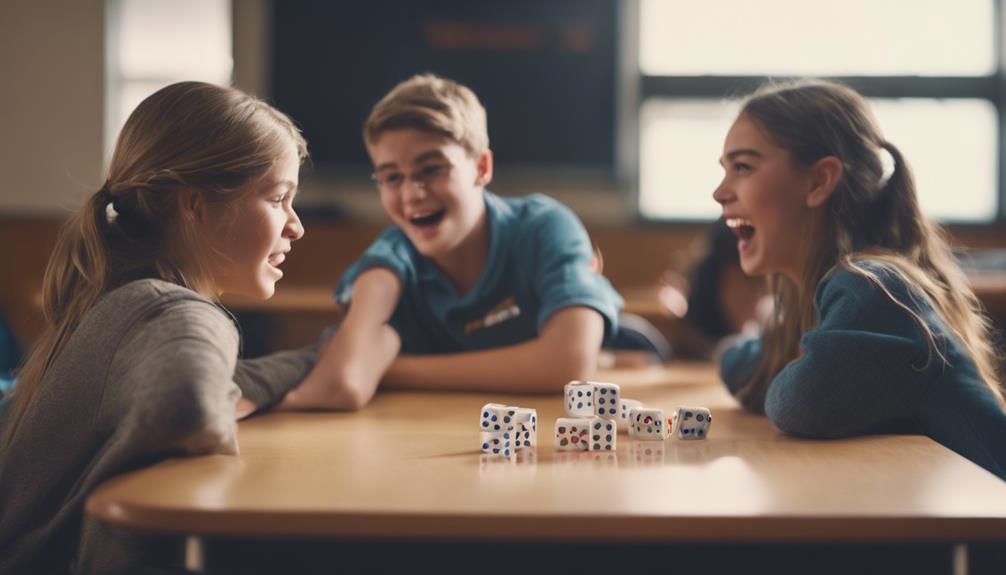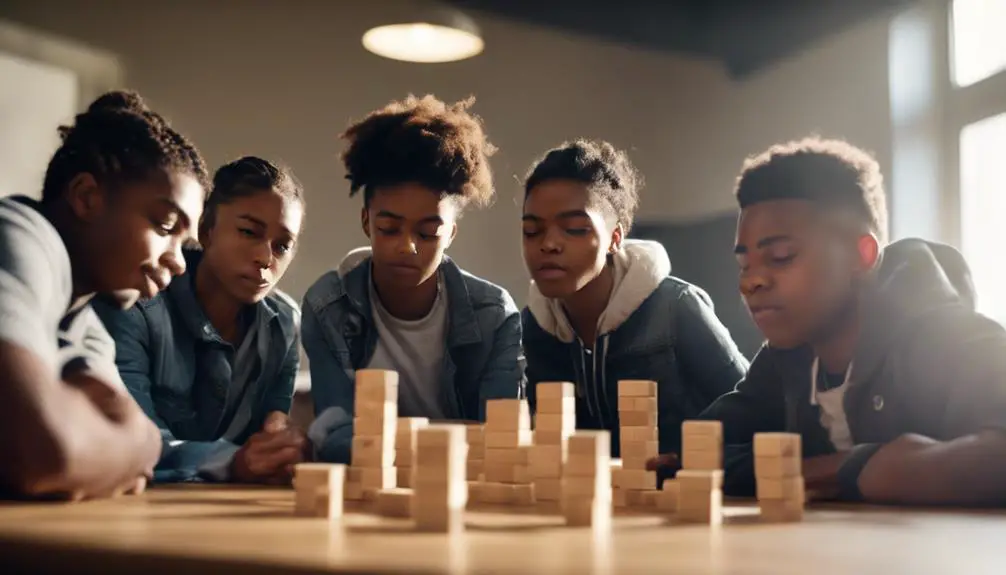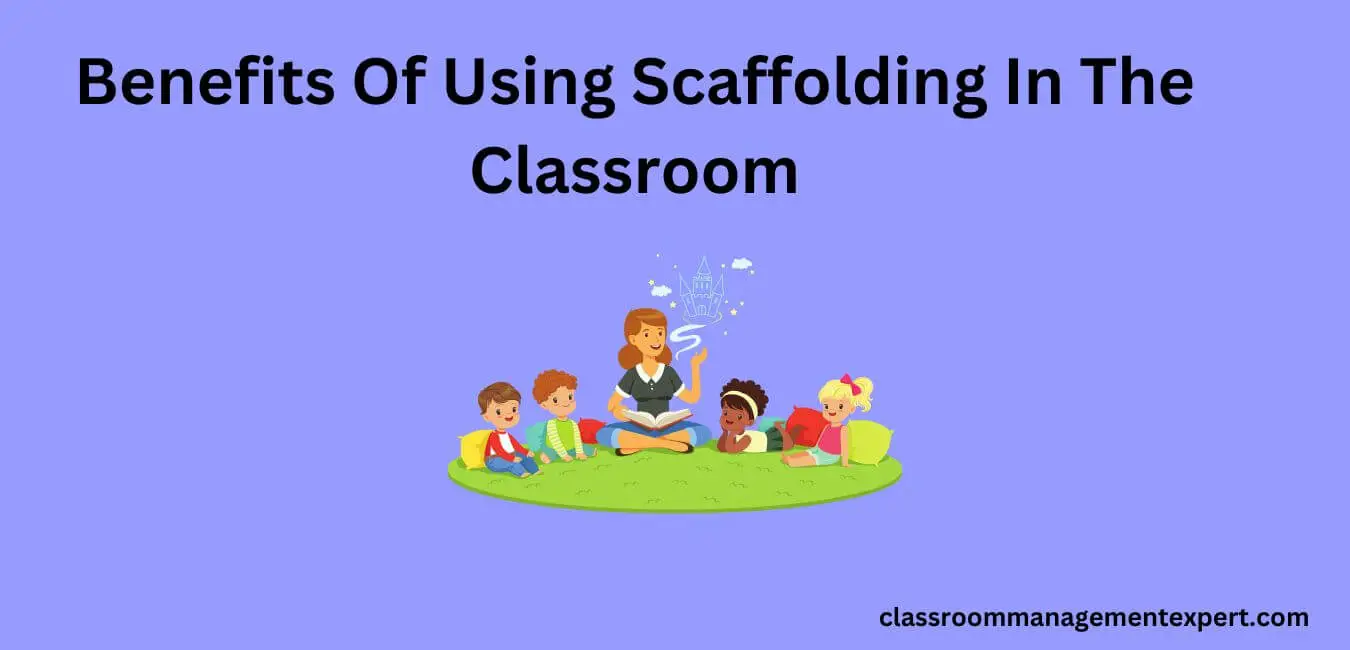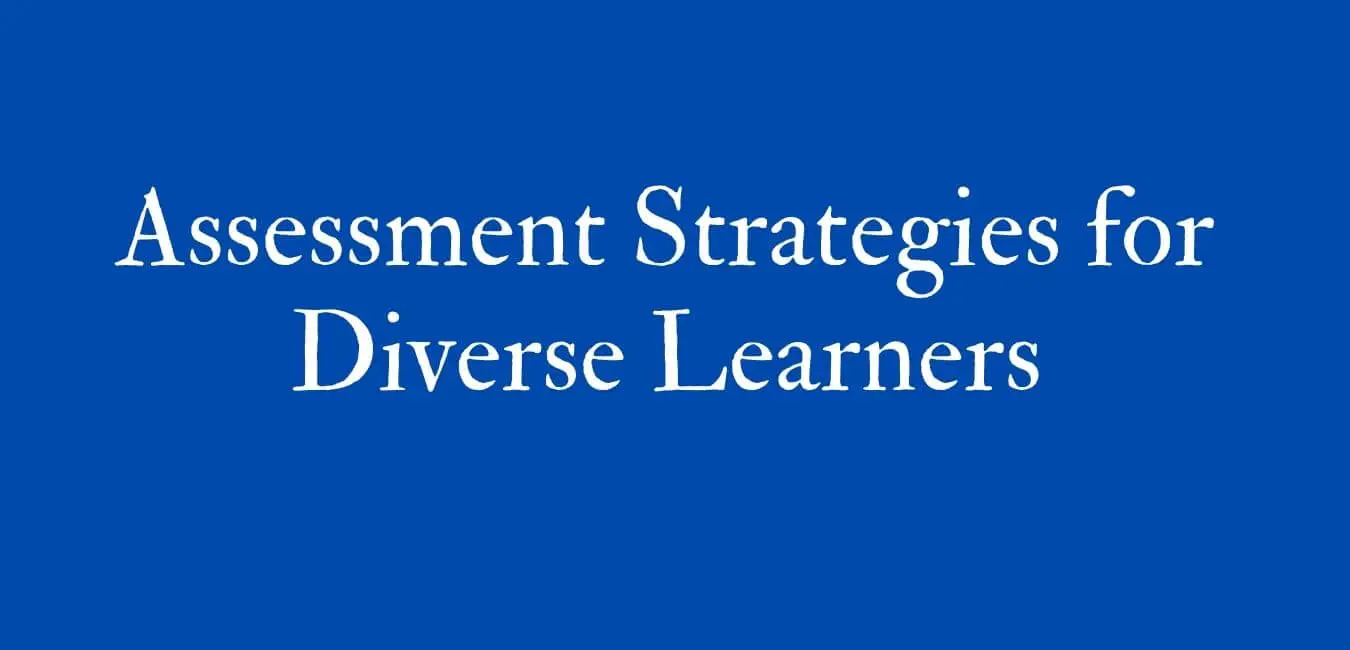Incorporating risk-taking games into your classroom can be a strategic approach to nurturing essential skills among students. These activities offer a platform for students to navigate unpredictability, make decisions under pressure, and learn from both successes and challenges in a controlled environment.
Engaging in tasks that push their boundaries can help students develop resilience, adaptability, and critical thinking skills crucial for their academic and personal growth. Let’s envision how these games can ignite curiosity, promote teamwork, and foster a mindset that welcomes obstacles.
Let’s look into the benefits of incorporating risk-taking games in your classroom.
13 types and names of risk-taking games for students in your classroom

Introducing games like The Price is Right, Battle of the Books, Two Truths and a Lie, Survival Scenario, and The Marshmallow Challenge can inject an element of thrill into your classroom.
These games push students to make choices, embrace risks, and confront potential outcomes in a secure and stimulating setting.
The Price is Right
Engaging students in the classroom through interactive pricing games like ‘The Price is Right’ can help cultivate risk-taking and critical thinking skills. This classic game involves students guessing the prices of various items, making learning a fun and engaging experience. Participating in this guessing game presents students with challenges that enhance their budgeting skills. These interactive activities not only encourage healthy competition but also offer educational enjoyment for students of all ages.
In ‘The Price is Right,’ students are prompted to guess prices, where inaccuracies can result in incorrect answers, adding an element of excitement to the gameplay. This aspect encourages students to think strategically and take calculated risks in their estimations.
Battle of the Books
Imagine yourself standing in front of a mirror, preparing for a literary skirmish known as ‘Book skirmishes.’ This intriguing reading rivalry challenges students to engage deeply with the content of the books they have read. It’s not just a mere novel contest; it’s a supreme faceoff that tests their knowledge of characters, plots, and themes.
As students delve into this competition, they are encouraged to commit to the material and rely on their memory, enriching their reading comprehension skills.
In this pageant clashing of literary knowledge, students get to explore various genres and authors, fostering a genuine love for reading. This reading rivalry transforms a simple competition into an exciting and fun novel contest where students can showcase their passion for storytelling.
Two Truths and a Lie
Let’s dive into the game ‘Two Truths and a Lie,’ where students share facts about themselves to challenge their classmates’ discernment skills. This fun icebreaker fosters a stronger classroom bond and enhances critical thinking abilities.
Here’s why ‘Two Truths and a Lie’ is such a valuable activity:
- Icebreaker Fun: This game helps students break the ice and get to know each other better.
- Teamwork Boost: Encouraging teamwork, students collaborate to uncover the false statement.
- Sharpen Critical Thinking: Participants analyze statements to identify the lie, honing their critical thinking skills.
- Building Camaraderie: Sharing personal truths creates a sense of unity and trust among students.
- Engagement Galore: The game keeps students engaged and interested, making learning enjoyable and captivating.
Survival Scenario
When engaging in a survival scenario game in the classroom, students may encounter various challenges that test their decision-making skills and ability to work under pressure. These challenges include the need to allocate resources wisely, navigate team dynamics effectively, and solve problems creatively to ensure their survival.
One major challenge students might face is deciding how to allocate limited resources like water, food, and shelter. It’s crucial for them to prioritize essential items over comfort items to increase their chances of survival.
Another challenge is managing team dynamics, which involves fostering open communication, delegating tasks based on strengths, and working together towards a common goal.
Moreover, students must be adept at problem-solving to overcome obstacles in the survival scenario. Encouraging creative thinking, thorough analysis of situations, and considering all available options are essential strategies for success.
These challenges push students to make tough decisions that may not always lead to the best outcome for their survival, but they provide valuable lessons in decision-making, teamwork, and resource management.
Engaging in survival scenario games helps students develop crucial skills that are applicable to real-life challenges where quick thinking and cooperation are vital. By exploring these scenarios, students can enhance their ability to think critically, collaborate effectively, and handle unexpected situations with confidence.
The Marshmallow Challenge
Imagine engaging students in hands-on activities like The Marshmallow Challenge to spark creativity and teamwork in the classroom. This game involves teams constructing the tallest structure using spaghetti and a marshmallow, pushing them to take risks with their designs and potentially face failure.
Here are some key takeaways from The Marshmallow Challenge:
- Teamwork and Innovative Solutions: Teams must collaborate and think outside the box to build a stable structure.
- Critical Thinking and Structural Integrity: Students need to critically analyze their tower design to ensure it can support the marshmallow at the top.
- Time Management and Collaboration: Effective time management and teamwork are crucial for successfully completing the challenge.
- Introduction to Engineering Concepts: The activity introduces basic engineering principles, encouraging creative problem-solving.
- Communication and Leadership Skills: Effective communication and leadership within the team are essential for achieving the task.
Encouraging student participation in The Marshmallow Challenge can enhance their problem-solving skills and foster teamwork in an enjoyable and interactive way.
Never Have I Ever (Classroom Edition)
Dive into a variety of interactive classroom games to boost student engagement and foster a sense of community, one of which is ‘Never Have I Ever (Classroom Edition).’ This game encourages students to share personal reflections, classroom confessions, hidden secrets, embarrassing moments, and awkward encounters.
The game poses a challenge as students risk revealing personal experiences that may lead to judgment from their peers. ‘Never Have I Ever (Classroom Edition)’ provides a platform for students to open up about experiences they might not typically discuss in a classroom setting.
Would You Rather
‘Would You Rather’ games offer students the opportunity to engage in challenging scenarios, prompting them to make decisions that reveal their preferences or fears. These games not only entertain but also encourage students to examine their decision-making skills in a fun and interactive way. Here are some key aspects of ‘Would You Rather’ games in the classroom:
- Facing Fears: Students encounter scenarios that touch on their deepest fears, prompting them to confront and assess their emotions.
- Critical Choices: The game presents dilemmas that require critical thinking and quick decision-making skills.
- Challenging Decisions: Students must make tough choices between two equally challenging or undesirable options.
- Revealing Preferences: The choices made in the game can unveil students’ preferences, giving insight into their likes and dislikes.
- Risk-Taking Scenarios: The scenarios in ‘Would You Rather’ games are intentionally risky, encouraging students to step out of their comfort zones and make calculated choices.
Escape Room Challenges
Imagine yourself immersed in an Escape Room Challenge, tasked with deciphering themed puzzles under time constraints. These challenges not only enhance critical thinking skills but also foster teamwork in a captivating classroom setting.
Students collaborate to unravel clues and unlock the room, emphasizing the importance of communication and leveraging each team member’s strengths. The element of time management adds urgency, prompting students to prioritize tasks, allocate resources effectively, and make quick decisions under pressure.
Engaging in Escape Room Challenges prompts students to think on their feet, adapt to unexpected twists, and effectively communicate to progress through the puzzles. By navigating the obstacles within the time limit, students develop resilience, creativity, and strategic thinking.
Ultimately, these activities provide a platform for students to hone their problem-solving abilities, enhance teamwork skills, and experience a sense of accomplishment by overcoming challenges together.
Debate Club
Engaging students in a Debate Club offers a chance for them to investigate contentious topics and hone their argumentative skills while navigating the potential challenges of intense discussions and interpersonal dynamics.
Here are some aspects that make Debate Club a valuable risk-taking activity for students:
- Mock trial: Students can role-play legal proceedings, deepening their grasp of the judicial system.
- Political debate: Encourages students to discuss current political issues, fostering critical thinking skills.
- Ethical dilemmas: Present students with moral challenges, prompting them to think ethically and make informed decisions.
- Public speaking: Enhances students’ communication abilities and boosts their confidence in addressing audiences.
- Research projects: Students delve deeply into topics, conducting thorough research to effectively support their arguments.
Risky Business
In the classroom, students engage in a business simulation called ‘Risky Business,’ where they face risk-taking challenges by investing virtual funds in different projects. This game prompts students to make daring decisions, testing their abilities in project management and understanding the consequences of their choices in a safe environment.
Through ‘Risky Business,’ students drive the game’s progression with their investments, encountering classroom hurdles that offer valuable learning experiences. Allocating resources involves calculated risks that can result in rewards or setbacks, imparting lessons on financial management and strategic thinking.
The game encourages students to assess the potential outcomes of their choices, considering both immediate benefits and long-term impacts.
Treasure Hunt
Imagine yourself in the classroom, ready to embark on an exciting Treasure Hunt game. Students will engage in deciphering clues and overcoming challenges to unveil hidden treasures. This activity not only brings a sense of adventure to the learning space but also enhances various skills crucial for personal and academic development.
This game fosters teamwork as students collaborate, promoting unity and cooperation. It encourages critical thinking by requiring them to analyze clues and make strategic decisions. Problem-solving skills are put to the test as students must think creatively to overcome obstacles and progress through the game.
Effective communication among team members is essential to share ideas and solve puzzles successfully. The emphasis on collaboration techniques highlights the importance of working together towards a common goal, fostering a sense of shared achievement among participants.
Creative Storytelling
Dive into the realm of creative storytelling in educational settings by challenging students to craft narratives using randomly assigned elements. This exercise encourages them to stretch their imaginations and face potential feedback.
Storytelling prompts act as catalysts for creativity, prompting students to think outside the box and construct original stories. Through this collaborative activity, students not only hone their creative writing skills but also learn the art of crafting compelling narratives with well-developed characters and unexpected plot twists to captivate the audience.
As students explore the nuances of storytelling structure, they gain valuable insights into elements like pacing, setting, and dialogue, thereby enhancing their storytelling abilities. Constructive feedback is crucial in this process, allowing students to refine their storytelling techniques.
Engaging in creative storytelling not only boosts students’ confidence in expressing their creativity but also helps them master the art of effective communication through engaging narratives. This practice nurtures their storytelling prowess and equips them with the skills to weave captivating tales that resonate with their audience.
Role-Play Scenarios
Engaging in role-play scenarios in the classroom involves students taking on different roles in a given scenario, which can bring about feelings of vulnerability or amusement among participants.
Role-play scenarios are not only fun but also serve as valuable tools for improving students’ skills in improvisation, character development, conflict resolution, team building, and communication. These activities challenge students to think quickly, embody diverse characters, and navigate through various social interactions, fostering personal growth and enhancing their educational journey.
Conclusion
In the classroom of life, students must navigate through challenges and uncertainties to discover hidden treasures of knowledge and growth.
Engaging in risk-taking activities acts as the compass guiding them on this journey, offering valuable lessons in decision-making, problem-solving, and teamwork.
Embracing the spirit of adventure and stepping out of their comfort zones allows students to unveil their full potential and emerge as fearless explorers of the unknown.











